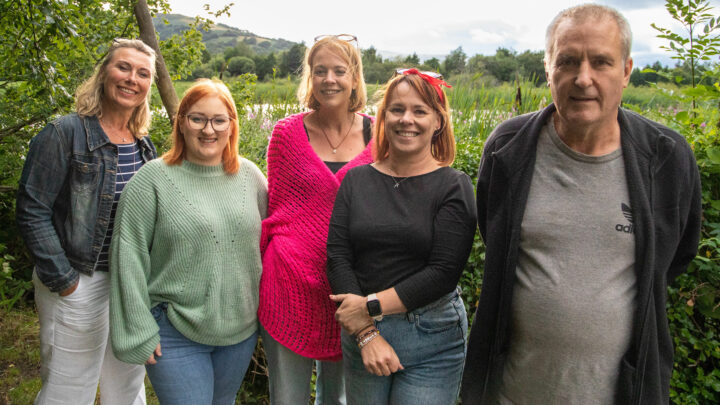What is a Community Benefit Society?
A comprehensive guide to the Community Benefit Society (CBS) business model, and the strong synergy with community shares

A Community Benefit Society (CBS) is a type of legal organisation that’s registered with the Financial Conduct Authority (FCA). It is a not-for-profit business model which makes it very attractive to funders who offer grants and set aside land and assets for not-for-profit bodies. Membership of a CBS is organised on the principle of one-member, one-vote, so it’s a great structure where there’s a fundamental equality between members which needs to be baked into the business. That’s a big reason why it’s so popular for community ownership of local assets which have meaning and importance for the whole community, such as pubs, shops, football clubs, leisure facilities and so on.
Below you will find answers to frequently asked questions about the business model, and a download link to our comprehensive guide that we highly recommend you download and read.
Community Benefit Society: frequently asked questions
Societies are registered by the FCA, and their registration system works most easily if you use a template produced by one of the sponsoring bodies which work to register societies. Support with legal structures, registration and business development is also provided by Cwmpas through Social Business Wales and the Community Shares Wales Resilience Project. Cwmpas can offer extensive business support to new start-up businesses and existing ones looking to grow. You’ll need is some basic details such as the name and business address, as well as at least three people or organisations to act as Founder Members. You’ll also need to describe who you’ll be seeking to benefit and how, and what your trading activities will be.
Yes. A social enterprise has at its heart a social purpose for the business beyond profit, and a legal structure that allows profits to be reinvested into the business or some other activity for the common good. A CBS is legally required to operate for the benefit of the community.
Withdrawable shares – the official and ‘old’ name for community shares is a specific type of share only available in societies. The advantages of this type of capital are two-fold. Firstly, it’s a great way of owning and funding a business where the point is to meet people’s needs. Secondly, the value of community shares doesn’t increase speculatively; the business is worth what it trades it way to being worth. The value flows from the activities of the business, not a potentially-fictitious assessment of what it may be worth. As a result, it’s a great way to fund businesses which you want to keep tethered to human need.
In many respects the day-to-day running of a CBS and a co-operative will be similar. The key difference is about the members and what they get. For example, co-op pubs can pay a share of the profits to their members, but not regular customers, because they don’t own the business. The members might believe the pub benefits the whole community, but they are also incentivised to have a stake in its success on a personal level. However, the CBS owned pub isn’t paying any member a dividend because all profits get reinvested. The point of the pub is the benefit the whole community, so any benefit the members of the CBS get is because they are part of the community the pub serves, not because they get the benefit because they are members of the society.
Although they have similar names and operate in many respects in very similar way, they have subtle but important differences. A CIC must have a Statutory asset lock which governs how it uses its assets and what happens if the business comes to an end. CBSs can also have a Statutory Asset Lock, but it isn’t compulsory. Both are required to report to a registrar each year on what they’ve done in pursuit of their legal requirement to operate for the benefit of the community. However, whilst a CIC can have a similar type of ownership and governance structure to a CBS, it can also have a self-perpetuating board who aren’t accountable to the wider community or can even be controlled by a single person like many a ‘regular’ profit-making company and can distribute one-third of their annual profits in dividends to shareholders.
A CBS must operate for the benefit of the community and can do anything it likes to achieve this. That’s solely a matter for the Directors and members to figure it all out, about how much benefit it can provide, and what it does to earn the money to enable the society to keep on trading. Charities are governed by a wholly different body of law, which restrict what a charity does and why it does it. A charity has a legal requirement to benefit the public exclusively, and to do so undertaking activities that are exclusively or mostly charitable. So, a Charity could run a social space, but wouldn’t be able to trade by running a bar or café at the same time. It wouldn’t be able to rent out the space to high-value clients because that wouldn’t be accessible to the public. Charities can set up wholly owned subsidiary companies to undertake whatever activities fall outside their charitable activities and whilst this is something many charities do, it does make thigs more complicated for the directors of the charities (often also called trustees) who are legally responsible for ensuring that the charity doesn’t do things it’s not allowed to do.
Our team is enthusiastic about community ownership and enjoy working with people across Wales to raise the capital they need to achieve a shared vision. If you need support, or would like to know more, please get in touch.
If you are based outside Wales and need support with your community share scheme, please visit the Community Shares webpage at Co-operative’s UK: Community Shares | Co-operatives UK
Community Shares Wales home page: Community Shares Wales
Discover more from Cwmpas: Our services









